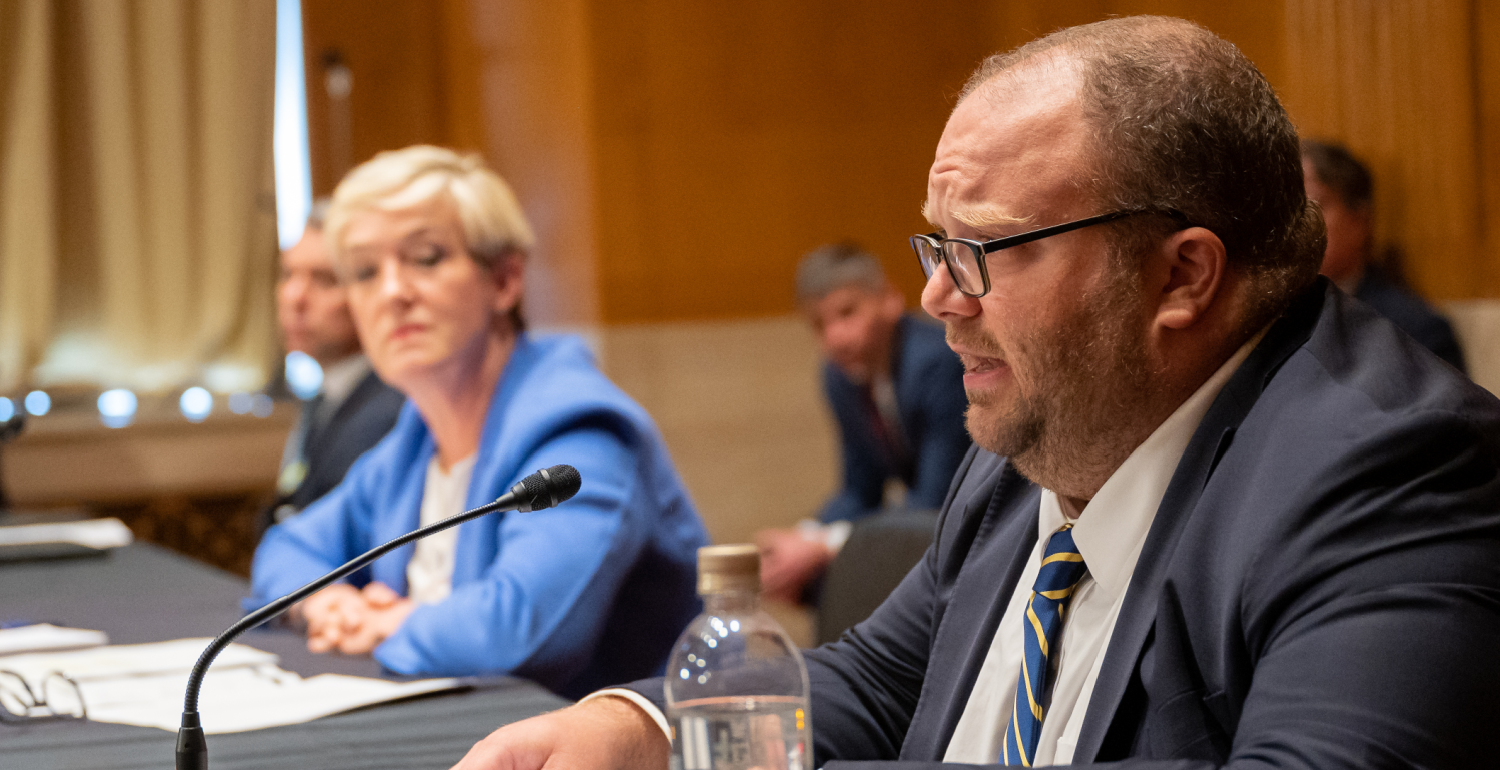Russia is weaponizing energy to prolong its unlawful invasion of Ukraine. Unfortunately, the sanctions that Europe and the United States have put in place have not been enough to curb Russian aggression thus far and the European Union pays Russia almost a billion euros a day for energy resources—mostly gas— that fund the Russian war machine.
Germany, in particular, has struggled to move away from its dependence on Russian gas. At the start of the Russian invasion of Ukraine, Germany imported 55 percent of its gas from Russia. As of June 2022, Russian gas imports had decreased to 35 percent, with a goal to decrease to 10 percent by 2024, but progress is slow and buying any energy from Russia means that Germany continues to fund their unlawful invasion.
Dr. Benjamin Schmitt, Research Associate at Harvard University and Senior Fellow at the Center for European Policy Analysis, pointed to the resurgence of Ostpolitik, a German diplomatic theory which seeks to build relationships and spread good governance through trade.
First introduced in the Cold War era, Ostpolitik was put into action once more in the early 2000s by former Chancellor Gerhard Schroeder, who became infamous for lobbying for Kremlin-backed projects in office and for sitting on the board of the Russian state-owned energy company, Gazprom, after leaving office. However, Russia attempted to leverage such projects, including the Nord Stream 1 project and its ultimately bankrupted predecessor, Nord Stream 2, to increase the vulnerability of Western Europe toward Russia.
According to Dr. Constanze Stelzenmüller, Senior Fellow at Brookings Institution, domestic political will exists in Germany to diversify energy sources, even if most are wary of making those changes immediately. German polling shows that one-third of Germans are willing to cut off Russian gas immediately, while two-thirds would prefer a slow gradual decrease in gas.
Dr. Stelzenmüller explained that if Germany were to immediately cut off Russian gas supplies, it is likely that a recession would affect not only Germany, but also many surrounding Eastern European countries, most of which have less capacity to manage a recession.
She stated, “Much of [Germany’s] manufacturing supply chains go deep into Eastern Europe. So, a recession in Germany would absolutely produce a massive, and perhaps worse, recession in our neighboring economies.” Any actions taken against Russia should ensure that sanctions hit Russia harder than those countries imposing the sanctions.
Mr. Yuriy Vitrenko, CEO of Naftogaz Ukraine, and Dr. Schmitt also emphasized the importance of the following recommendations outlined in the REPowerEU plan, the European Commission’s plan to make Europe independent from Russian energy before 2030, and the International Working Group on Russia Sanctions Energy Roadmap:
- Full European/US embargos on Russian gas.
- Creation of a special escrow account that will hold net proceeds due to Russia until the Kremlin ceases all hostilities.
- Diversification of energy dependance away from Russia through energy diplomacy that identifies other potential suppliers, like Qatar.
- Funding and construction of energy infrastructure around Europe.
- Termination of Gazprom ownership of all critical energy infrastructure in Europe.
- Designation of Russia as a state sponsor of terrorism, which would automatically trigger secondary sanctions on any country that imports Russian goods.
- Sanctioning of all Russian banks.
- Strengthening of Ukrainian capacity to participate in the energy sector through the creation of modern energy infrastructure during the post-war reconstruction period.
- Pass the Stop Helping America’s Malign Enemies (SHAME) Act, banning former U.S. government officials from seeking employment by Russian state-owned-enterprises, or Schroederization.










